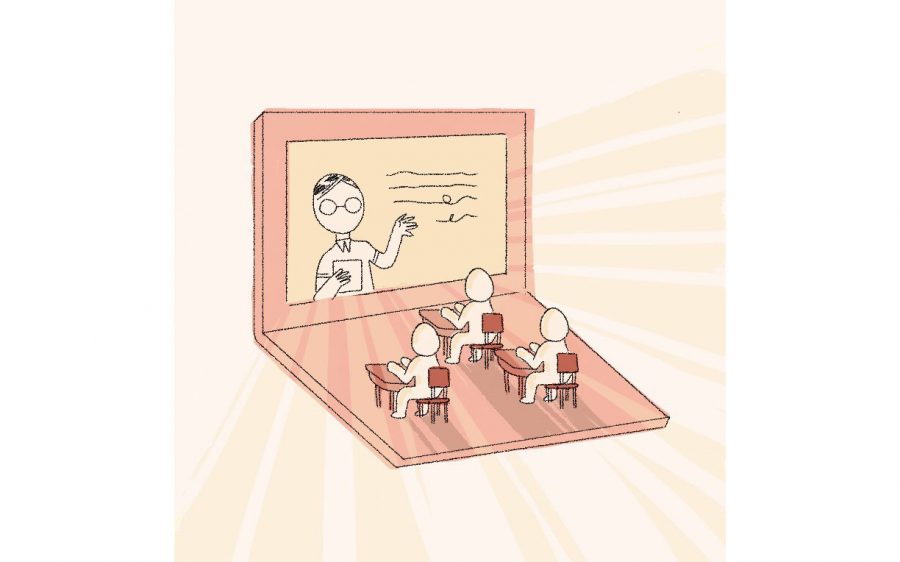We’ve all heard that online classes don’t work — you’re probably going to forget to watch them, zone out from your bed and won’t get direct student-professor engagement. But the reality is, the majority of online classes at UT are designed with this in mind and prove to be more beneficial than disappointing.
Online classes were first introduced in 2013 when Psychology 301 and Government 312L were live-streamed to students for the first time to help relieve overflowing classes. Both of these online courses have evolved over the years and are now among the largest at UT. Unfortunately, the electronic course instructor surveys sent out to students at the end of the semester for these courses are not positive, but this result is not surprising.
Online classes yield a result heavily reliant on what students put into them. In remotely taught classes, students are less likely to reach out to their professors as they would in a physical classroom. Students may also be hesitant to respond in a class chat with hundreds of students watching. But students who do choose to engage in online classes and dedicate the necessary time to succeed in any class are just as, if not more, successful. Overwhelmingly, students responded that both of these courses were beneficial. In Government 312L, 84.4 percent of students said they “agreed or strongly agreed” with the statement that they “learned a great deal in the course” and for Psychology 301 it was 83.5 percent.
Online classes can be worth taking as long as students put in the expected work for them and use the University’s online class resources to ensure success. Marla Gilliland, the director of course development for Liberal Arts Instructional Technology Services, said live-streaming courses makes sense for bigger class sizes to increase enrollment without losing the rigor.
This semester the largest online course holds 1,400 students. The same number of students in this single online class would have taken up multiple classrooms and require more professors to teach each of those classes on campus. Having students take classes from the comfort of their own homes saves University resources while maintaining the same level of engagement between professors and students as an in-person class.
Furthermore, UT is currently experimenting with more on-demand online courses, where lectures are pre-recorded and watched at the student’s pace. This means that a student can work ahead when they have the time, or catch back up in a day without being penalized. This type of online class flexibility allows students to decide when they have time for class without the added stress of adhering to a strict weekly schedule.
UT has put in the time and resources to make online courses a reliable option for students to learn at their own paces on their own schedules. However, online classes are what students make of them. We can only benefit from University resources like these classes if we actually use them.
Newman is a journalism junior from Frisco.


















